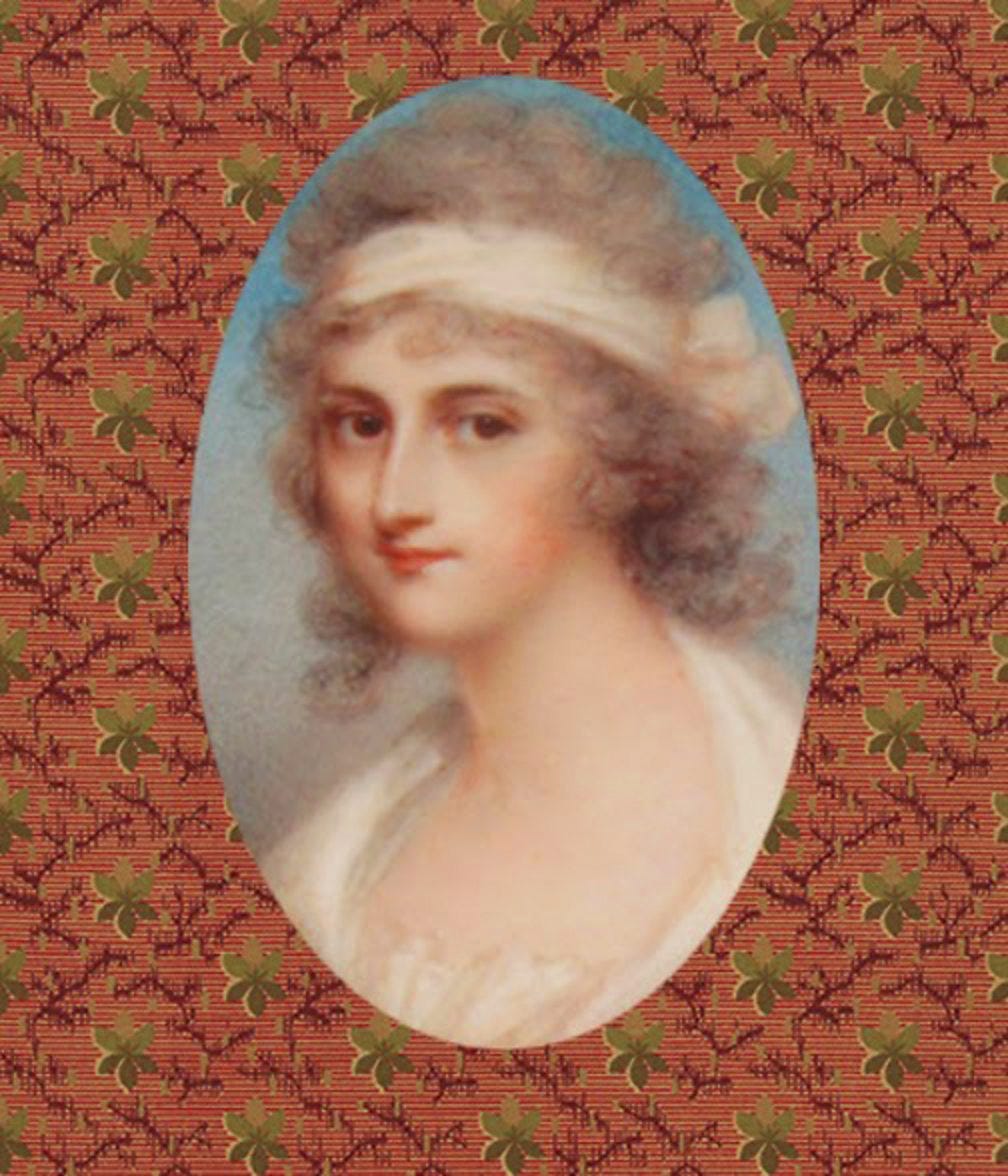Jane Austen's Sister-in-Law Arrives at the Lighthouse
I think we both know that two things can be true at the same time.
Shoutout to Megan Baxter’s Writer as Researcher course through ’s Muse, for which this essay was crafted.
Shoutout to Virginia Woolf’s novel To the Lighthouse and the character Mrs. Ramsay who never got to go there. Shoutout to Jane Austen’s sister-in-law Elizabeth, who, on Tuesday, October 10, 1808, at age 35, after eating a hearty dinner with the family and complaining only of exhaustion, laid down and died. She had given birth to her eleventh child several days earlier. The cause of death eluded everyone.

Dear Elizabeth,
You died the other day. Actually, it was 200 years ago when you finished your dinner, made your way upstairs, fell asleep, and never woke up, but let’s not quibble over something as small as time.
I should probably tell you about Jane. She’s faring well in this century: lots of props for her singleness, abundant movie adaptations. Cassandra did burn most of her sister’s letters, and the literary experts still moan and salivate over the facts that can’t be recovered. Does it reassure you to know that the Jane you knew is gone from the public consciousness? Or do you wish we could see the woman who tittered at dinner gatherings about social faux pas and sat at windowed desks later to write them down? Too clever for her own good, that Jane.
I get it. What was a character drawn on the page to the living, breathing beings you brought into the world year after year? (Hats off to you, by the way. I bore my two babies four years apart. My first was born at 34, only one year younger than when you birthed and breathed your last.)
You were richer than Jane, and I don’t mean the several estates and their parks. No, girl. You’ve always had more than she did: connections, beauty, a smart education. And you kept on having what you wanted! A husband, children, that grand estate. Your friends say how happy you always seemed, but I think we both know that two things can be true at the same time.
Does it bother you that I imagine you secretly wanting to read Jane’s novels? I mean, just to see what the fuss is about. I know, I know. You’d have to admit a mountain of desires beneath that one, and besides, what mother has time? Anyway, your good man Edward would probably scoff at the waste–of time, maybe. Of words that could have been a sermon. Fiddly things, those stories that begin with other Elizabeths than you, too clever for their own good, and end at the church door, mission accomplished. You know that’s where the real story begins.
But what I’m actually curious about, dear, is that night you laid down your head and died right there next to your bowl of soup on the long dining room table. Okay, I elaborate. I know you died in your bed, but the image of the linen tablecloth’s squares impressing your tender, tired cheek is crosshatched across my imagination. (Much like Jane, I spend my hours dreaming at a desk in front of a window; I hope that need not come between us.) What I want to know is what you thought about as you drifted away. “I’ll never get to read them now,” meaning Jane’s books? “I’ll never see them again,” meaning your precious eleven? Send me a sign, if you will. That final reckoning.
Either way, I’m certain you took the circumstances in stride, the way you had taken everything: opiate for the contractions, decades of bruised breasts, not to mention your husband’s requests for sex and souls in your womb so often, too soon. You took it like woman, or maybe a survivor. Elizabeth, I think about the diary you never had the time to keep, in which–forgive my presumption–you might have written your envy of Jane’s life. To sit in a chair! To gaze out a window! At dinner before you died, your limbs felt like lead, the silverware too heavy to lift.
Sometimes (it may sound strange) I gaze down the table through your sleep-weighted eyes. Edward at the far end, your children old enough not to be in nursery gazing back. Sister-in-law Cassandra there to help you during your confinement. Your eldest daughter Fanny, who always looked like she was laughing inside. Probably got that from her Aunt Jane. Tonight, you’re too tired to envy the likeness.
I read the letter Jane sent Cassandra later that week, after you were gone. How does the Corpse appear? Jane asked. I’m sure she didn’t mean to be rude. And just days before, right before the baby came, I understand Fanny jotted in her diary, Mother as usual very low. Five days later, Mama got up for dinner and Daddy went back to work.
Look, I’m there with you, girl, your granite eyelids lowering along with your fork. Here’s what I think. You surprised yourself. You didn’t look around at the children one long last time. You did stop for a moment to regret the stories you would never inhabit. But the idea of rest was too lovely, dark, and deep. While nobody noticed, you heaved a sigh for the ages, unfolded your soft, tired, still-young body, and decided you could stop for death. Did it feel like coming home?
I know. I imagine things, but darling—I imagine you. Give my love to Mrs. Ramsay.
“For now she need not think of anybody. She could be herself, by herself. And that was what now she often felt the need of - to think; well not even to think. To be silent; to be alone. All the being and the doing, expansive, glittering, vocal, evaporated; and one shrunk, with a sense of solemnity, to being oneself, a wedge-shaped core of darkness, something invisible to others... and this self having shed its attachments was free for the strangest adventures.”
- Virginia Woolf, To the Lighthouse





Dang, Rebecca!
Beautiful. Sometimes it seems like women who lived long ago weren't like us, but, of course, they were in so many ways.